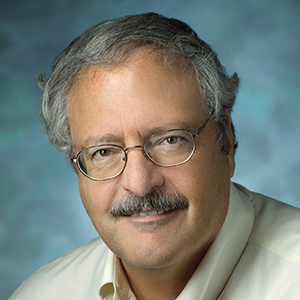Early birds get rapid responses on meeting abstracts
Three days before the start of the 2019 American Society for Biochemistry and Molecular Biology Annual Meeting in Orlando, the society headquarters received an urgent request.
“I am writing to you to beg for your help. My visa is still under administrative processing as of today,” wrote a graduate student in the Philippines who’d won one of our travel awards. “Your intervention just might be the needed thing to take this arduous process to its end.”
This is a common story. Visa processing times vary wildly around the globe. Many prospective international attendees spend months worrying that they won’t make it through all the hoops in time to present their work in the U.S. Some don’t make it at all.
It is my hope that a new ASBMB program will help alleviate some of the stress associated with securing visas for our annual meeting and will make our meeting more accessible.
Here’s how it works: The Experimental Biology abstract-submission system opens in September. If you submit an abstract in an ASBMB category by Oct. 15, we’ll let you know within two weeks of your submission date whether it has been accepted. That should give you about six months to make travel arrangements.
The regular abstract deadline won’t be until November, as it is every year. Those who submit abstracts after the Oct. 15 priority-decision cutoff will have to wait until early 2020 to find out if they’ve been chosen to present their work.
If your abstract is accepted early through the priority-decision program, you still will need to wait until early 2020 to find out what type of presentation you’ll be giving (either a talk or a poster). But at least you’ll be able to start making travel plans.
You don’t have to be a researcher from outside the U.S. to benefit from the priority-decision program. Indeed, all early-bird scientists are welcome to participate.
As for the graduate student I mentioned above, I am glad to report that he did make it to Orlando to present his research, and he says he plans to be at the 2020 meeting.
The priority-decision program won’t solve everyone’s visa-related problems, but I’m hopeful that it will open the door for more scientists from around the world who want to present their important biochemistry and molecular biology research at our meeting.
Enjoy reading ASBMB Today?
Become a member to receive the print edition four times a year and the digital edition monthly.
Learn moreFeatured jobs
from the ASBMB career center
Get the latest from ASBMB Today
Enter your email address, and we’ll send you a weekly email with recent articles, interviews and more.
Latest in Careers
Careers highlights or most popular articles

Upcoming opportunities
ASBMB's PROLAB award helps graduate students and postdoctoral fellows spend up to six months in U.S. or Canadian labs.

From humble beginnings to unlocking lysosomal secrets
Monther Abu–Remaileh will receive the ASBMB’s 2026 Walter A. Shaw Young Investigator Award in Lipid Research at the ASBMB Annual Meeting, March 7-10 in Washington, D.C.

Chemistry meets biology to thwart parasites
Margaret Phillips will receive the Alice and C. C. Wang Award in Molecular Parasitology at the ASBMB Annual Meeting, March 7-10 in Washington, D.C.

Decoding how bacteria flip host’s molecular switches
Kim Orth will receive the Earl and Thressa Stadtman Distinguished Scientists Award at the ASBMB Annual Meeting, March 7–10, just outside of Washington, D.C.

Defining JNKs: Targets for drug discovery
Roger Davis will receive the Bert and Natalie Vallee Award in Biomedical Science at the ASBMB Annual Meeting, March 7–10, just outside of Washington, D.C.

Upcoming opportunities
No matter where you are in your career and what future path you aspire to, everyone needs leadership skills. Join ASBMB for practical strategies for building and practicing leadership skills.

